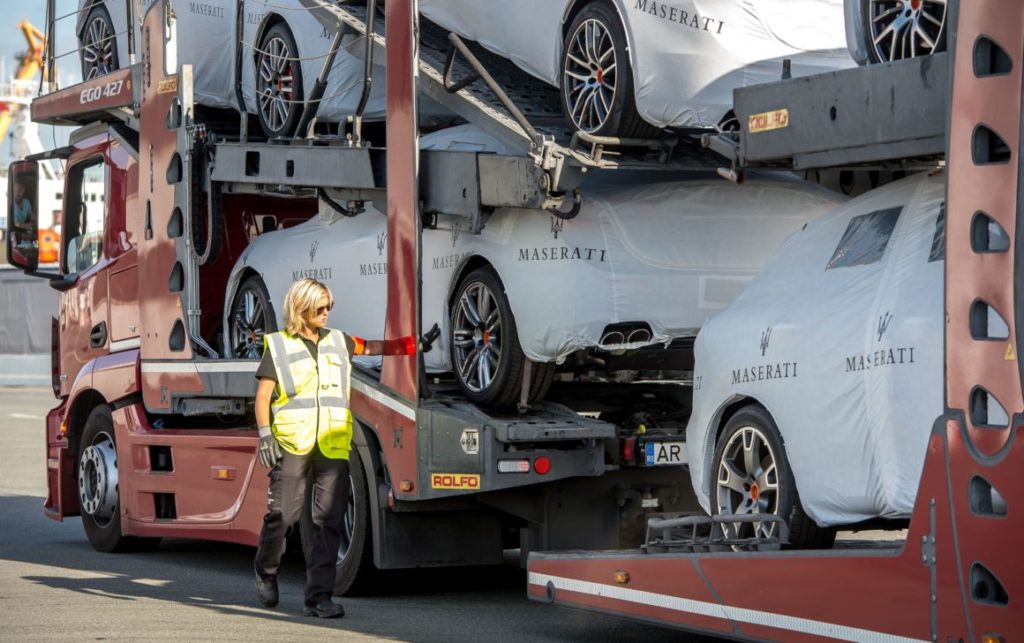
UK automotive industry statisticsIn spite of a dull year for UK automobile manufactures as production declined by 19.6%, we nevertheless see some development in the automobile industry in the UK. For much more than 100 years, the automotive organization model has remained usually unchanged: people own vehicles that they can drive themselves. We are witnessing main trends that, taken individually, could be very disruptive to the state of the sector. Technological and behavioural aspects are among a long list of vital forces that will shape how the automotive marketplace evolves more than the next 10 to 20 years.
Hopefully widespread sense will prevail from both sides of the future negotiations and that barrier cost-free trade can continue amongst the UK and the EU. Nonetheless if an acceptable deal cannot be done by the politicians – then it is probable that new investment in the UK motor market will dry up. This will lead to an inevitable decline in the UK vehicle manufacturing market and falling production numbers.
Whilst from an environmental perspective, the new measures look typical sense, ought to companies fail to treat them seriously, main players in the industry could be left out in the cold, even though sales could subsequently suffer. According to current figures from the Society of Motor Companies, the UK’s new automobile market place is already shrinking due to this, with new car registrations down 9.three% in the month of July 2017. The month saw 161,997 new cars registered in the UK, down from 178,523 compared to July 2016. The total registrations for the year meanwhile reached 1,563,808, representing a two.2% fall from the first seven months of last year. Diesel sales have meanwhile taken the most significant fall of 20.1% for the month of July in which the government’s proposed ban of petrol and diesel automobile sales, while falling 11% for the year in total.
The Automotive Market Employs More Folks Than You Consideruk car insurance industry statistics
uk car insurance industry statisticsThe effect of a no-deal Brexit on the automobile industry would be potentially catastrophic. Ought to the UK increase environmental ambition, then some makers may possibly merely decide not to try and sell their polluting items in the UK, which would outcome in a boost to those that comply. If these ‘complyers’ are based here, this outcomes in a enhance to the domestic sector. So there is actual prospective for a a single-off ‘landgrab’, by means of enhanced ambition.
Regardless of the encouraging predictions for sales in the industry, there is also the potential for key disruption due to the advance of environmental crises and corporate and governmental responses to them. Alongside the development trends in the standard automotive business, the AlixPartners evaluation noted a major trend in the comparatively new Electric Car (EV) sector, highlighting that the EV share of the all round market place has exponentially grown by 168 % over the previous two years. At the existing price, the share of EV cars in the all round automotive sales of Europe is anticipated to surpass 40% by 2030.
UK Automotive Sectoruk automotive industry statistics 2017
uk car insurance industry statisticsThe impact of a no-deal Brexit on the automobile sector would be potentially catastrophic. Environmental issues about the influence of carbon fuels on the climate alterations are driving the development of EV (Electric Cars), hybrid automobiles and fuel cell technologies. Toyota introduced a fuel cell hybrid car notion for its Prius model in 2015, while Honda (whose CEO tries to restore the company’s reputation right after one more vehicle recall the exact same year ) already has a model in the marketplace. Implementation of LED lights is also crucial for power savings. Automotive companies need to have to move quick to acquire a location in this expanding market segment.
According to analysis conducted by AlixPartners , the subsequent 7 years in the automotive industry will be characterised by worldwide development of two.eight % per annum, ultimately reaching the figure of 114 million units in 2024. Regionally, North America and Europe are predicted to have the lowest rates of development at .1% and 1.7% respectively, whilst Asia and South America are predicted to develop at substantially larger prices. The Greater China region, which consists of China, Hong Kong and Taiwan, registers the highest price of predicted growth at five.two%, followed closely by South Asia at four.5% and South America at four.three%. Even so, the figure for South Asia may be boosted by the fact that the report contains Australia and New Zealand within the exact same bracket, in spite of geographically falling within the broader region of Oceania.
Business professionals have found that, over the previous couple of years, emotional attachment to automobiles has decreased drastically. This explains why car sharing has become quite popular, even in emerging economies in the APAC and the EMEA regions. The reality that by 2030, a single out of every ten vehicles sold is estimated to be a shared car, reflects the growing awareness to ‘go green’ and reduce carbon footprints.
Females In The Automotive Sectoruk automotive industry statistics 2015
uk automotive industry statisticsThe automobile business in the UK is no longer booming as considerably as it employed to. When a component of the country’s national identity, auto brands Rolls Royce, Bentley and Jaguar are no longer British brands. IoT and connected devices have now created their way into the automotive industry. It is anticipated that connected cars will step out of developmental obscurity and turn out to be an crucial personal item to be connected to the web. While the technologies in itself is not new, the adoption price of connected cars will rise steadily more than the next 5 years.
What becomes really clear is that UK organizations are not manufacturing to UK government regulations and policies. The reality is that considering that exports are the bread and butter of the automotive business, the vehicles getting constructed here are becoming constructed to other countries’ requirements and regulations. If this continues (and, Brexit apart, there is no purpose why it must not), future sales are fully reliant on other countries’ future policy framework.
Although completely autonomous automobiles will take some a lot more time to make their way onto the roads, autonomous autos are certainly worth the watch in 2018. With rewards like decreased accidents, greater visitors management, and enhanced passenger comfort, the autonomous car is most definitely the crème de la crème where future automotive technologies is concerned. After Google and Uber, 2018 will witness a string of automotive giants launching their personal variants of autonomous automobiles.








